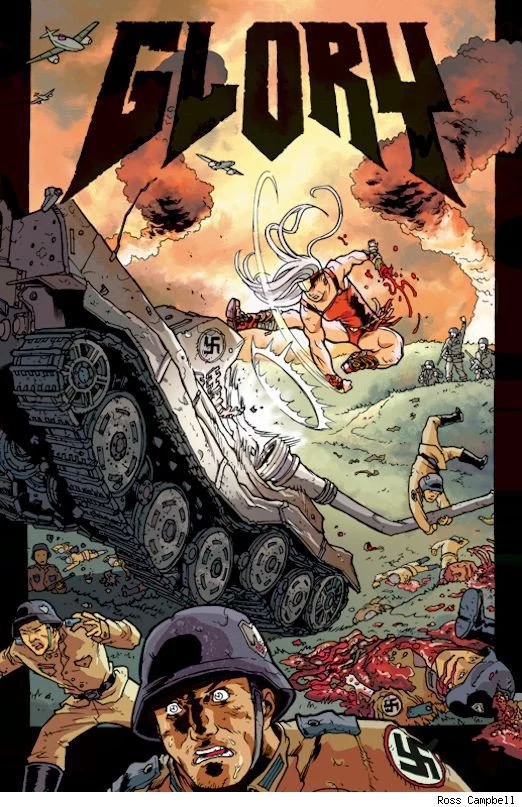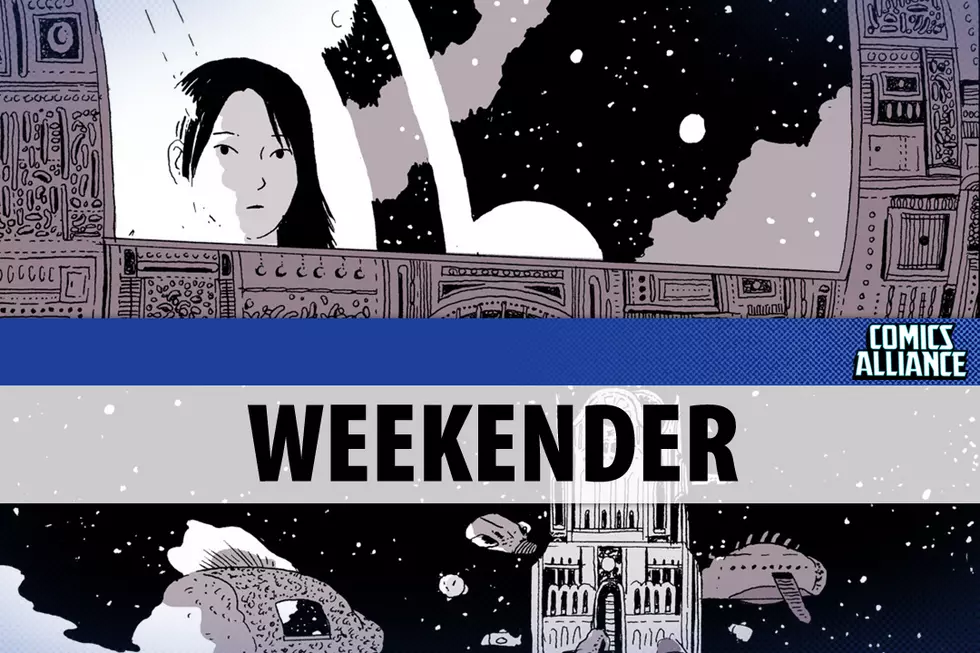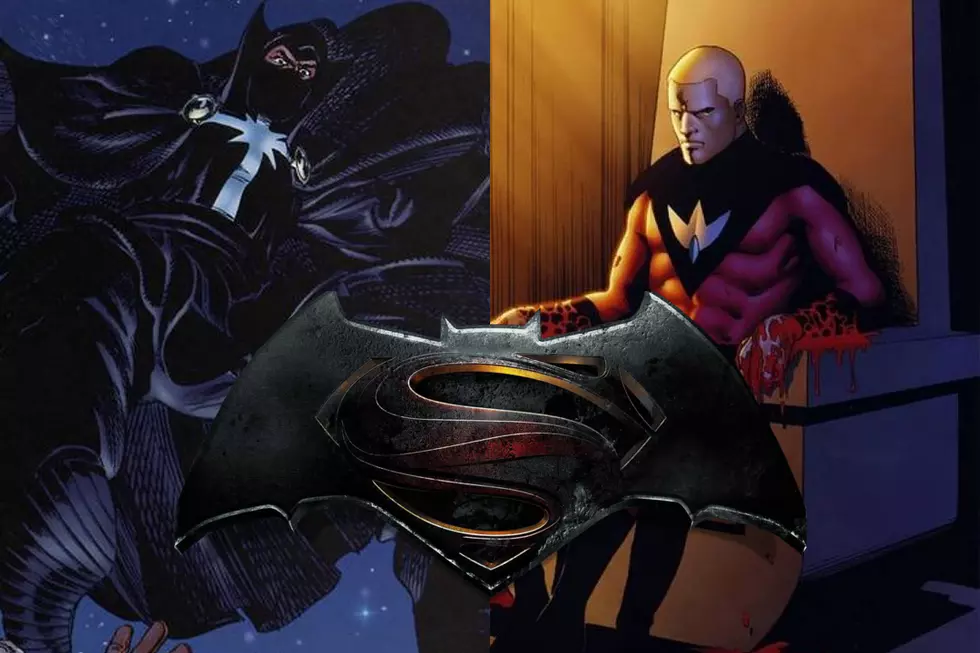
Image Comics Removes Swastikas from ‘Glory’ and ‘Pigs’ Art in Accordance with German Law

"I have wanted a [comic I wrote] to be banned forever, so this is very much a dream come true," joked comics writer Joe Keatinge earlier this week, upon learning that Image Comics' Glory #23 will be censored in Germany -- kind of. More accurately, the December 2011 edition of Diamond Comic Distributors' Previews, the catalogue from which retailers around the world purchase new comics, will include Glory #23 artwork that's been modified to remove swastika imagery from a scene in which the titular heroine fights Nazis in a World War II flashback. Additionally, the cover art for Image's Pigs #6 -- featuring a character covered almost completely in bloody, swastika-shaped scars -- is also being censored for Previews, which is distributed in Germany.
The changes are being made in accordance with German law, which prohibits the "use of symbols of unconstitutional organizations," which naturally includes the Nazis. It's a law that has impacted comics on several occasions.As pointed out by JK Parkin at Robot 6, the law in play here is a legacy of Denazification, a massive initiative put forth by the Allied Powers at the conclusion of World War II to remove not just certain personnel from positions of power and influence in Germany, but also to promote the erasure of Nazi symbols and propaganda -- like the swastika -- from German culture altogether. It is a broad and deeply fascinating subject that has run up against comic books a number of times, including instances having to do with Art Spiegelman's landmark holocaust graphic novel Maus. While obviously not a work of Nazi propaganda, copies of Maus and other material used to promote the book have occasionally been confiscated by German authorities. German comics blogger Subzero wrote about additional examples of Denazification in comics, such as a collection of Mike Mignola's B.P.R.D. 1946, whose cover artwork was modified in such a way that a swastika appeared to be a kind of square.

Also mentioned by Subzero is perhaps the most famous example of this phenomenon, Blade of the Immortal. The very popular and long-running manga by Hiroaki Samura stars a character who wears a left-facing swastika -- sometimes called a sun wheel or sauwastika or manji -- which predates the Nazi version and for many cultures represents decidedly non-nefarious concepts such as peace and harmony. However, because Western editions of Japanese comics are frequently edited so as to be read from left to right, the symbol in Blade of the Immortal can easily become the Nazi swastika. Dark Horse reprints of the series do not use the mirror-imaging technique, but do come with an advisory explaining the provenance and context of the symbol and why the lead character wears it. German editions of Blade of the Immortal feature artwork modified so the symbol on the character's back looks like an "X".

Image Comics Publisher Eric Stephenson questions the value of this particular German law, as he explained in a blog post about the Pigs and Glory developments.
Swastika-laden images have been prohibited from appearing in publications sold in Germany for decades at this point. I'm not sure I understand what the point is, though. World War II did happen, and Nazis did exist. I understand not wanting to encourage modern day Neo-Nazi groups, but censorship isn't a particularly effective weapon against hate groups of any kind. Plus outlawing specific Nazi iconography seems strangely revisionist, as though it's best to just not acknowledge the impact that symbol had, or the evil associated with it.
There's an exception to the law by which works of "art, science, research or teaching, reporting about current historical events or similar purposes" may not be censored, but it would seem that German authorities don't afford comic books that distinction.
With respect to Glory and Pigs, Stephenson told ComicsAlliance that no matter what, those Image titles will be released as intended. "We aren't removing these images from the comics themselves. We only edited them for Previews, otherwise Diamond would not run them," Stephenson explained via email. "The comics will be shipped as they were originally intended to be seen. If that means they're not sold in Germany, then they won't be sold in Germany."

More From ComicsAlliance





![Art Baltazar and Franco Bring You Tales Of ‘Itty Bitty Hellboy’ [Preview]](http://townsquare.media/site/622/files/2013/07/Hellboy-lede.jpg?w=980&q=75)

![Gabriel Ba & Fabio Moon on Their B.P.R.D. Revenge Epic ‘Vampire’ [Interview]](http://townsquare.media/site/622/files/2013/02/untitled-1-1361303298.jpg?w=980&q=75)
![See Glory and Her Friends Face Death in ‘Glory’ #32 [Preview]](http://townsquare.media/site/622/files/2013/01/glory-lede.gif?w=980&q=75)
